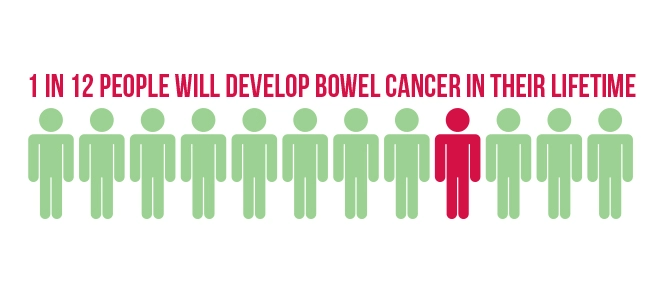Pathology testing is the key to beating Australia’s 2nd biggest cancer killer.
A recent report commissioned by Bowel Cancer Australia has highlighted the risk of developing bowel cancer.
The report 8 million Australians in the crosshairs of colorectal cancer demonstrates the need to focus on early detection as bowel cancer affects 15,000 Australians annually, with 4,000 deaths per year.
The disease is most common in people over 50 and so this age group has been targeted by a number of national screening programs.
Pathology testing plays a central role in bowel cancer screening and early detection.
The test used in the screening programs is the Faecal Immunochemical Test (FIT), which looks for traces of blood in the faeces. This blood may not be visible to the naked eye.
The test kit contains the simple tools needed for a person to collect samples of their faeces and send these off to be tested in a lab.
If the test comes back positive, the next step is likely to be a colonoscopy procedure where a long flexible tube with a camera at the end is inserted into the bowel for further examination.
The FIT is not the limit of pathology’s role in bowel cancer.
Dr Penny Yarrow is a pathologist based in Hobart; “Pathology is needed throughout the bowel cancer journey from screening through to diagnosis and monitoring a patient during and after treatment.
The actual diagnosis of cancer is made by a pathologist. A tissue sample taken from the patient’s bowel will be examined under the microscope to determine if cancer or a precursor lesion is present. If cancer is present and an operation is required to remove it, a pathologist will again examine the tissue to establish how far cancer has spread and what stage the cancer is at,” said Dr Yarrow.
Pathology testing is also used after diagnosis to help doctors determine the best course of treatment. For example, genetic or molecular tests can show mutations in particular genes which affect how cancer may respond to certain drugs. Testing is also performed to determine if a cancer may be the result of a genetic predisposition.
Bowel Cancer Australia CEO Julien Wiggins said: “Bowel cancer is more common than many people realise affecting 1 in 12 Australians at some point in their life. It is the second most common cancer in Australia but unfortunately does not have as good a survival rate as other common forms of cancer.
This is why screening and associated pathology tests are so crucial. It gives us that all important chance to get the cancer early, or helps determine tailored treatment options.”
The report also showed that rural and remote areas had higher mortality rates in part because these communities contain more people in the high risk age group of 50-79 years.
Bowel Cancer Australia is urging people to “get over the yuck factor” and take the test.
Image: Bowel Cancer Australia https://www.bowelcanceraustralia.org/facts

